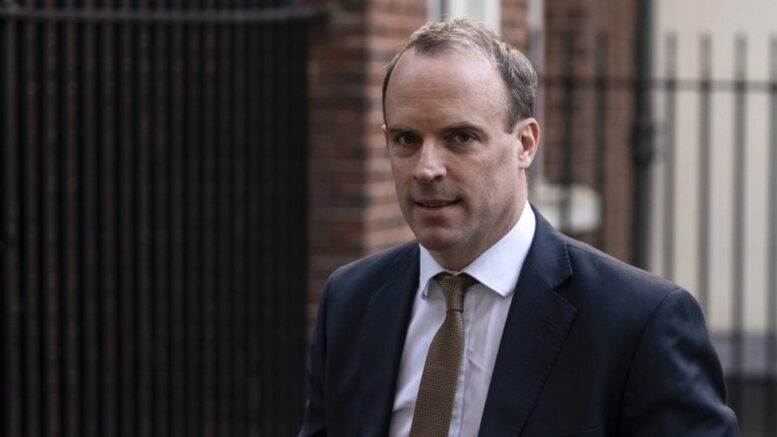I’ve had some pretty shall we say interesting bosses or guv’nors over the years. I’ve had those that were ineffectual, did stupid things, were hard working and energetic or were lazy arses who took full advantage of the privilege to work from home. I’ve also had bosses or supervisors who have treated the company they worked for like a cult object to be worshipped and others who treated their staff like crap for no good reason and had no loyalty to anyone but themselves. I’ve also had those manage me who were shouty and aggressive but were that way because of the pressures that they were under. Looking back I can see now just what pressures they were under and that the shouty behaviour towards staff got the results that were needed and indeed benefited those who could see the guv’nor’s point about whatever was being criticised.
I’ve never taken any long term harm from any of the bad or good but aggressive managers that I have had over the years and in some cases shouty but good managers forcefully given advice is still something I hear in my head and apply to life and work today. I’ve even learned from the less shouty but bad managers about how not to do things.
Managers telling staff what to do and sometimes having to be quite forceful about it is for me just a fact of life. Sometimes the stakes are so high that management by bollocking staff or staff’s fear of getting a bollocking or harsh but fair discipline is the only way to get a particular job done. The military for example has harsh discipline for damned good reasons because the stakes are so high, sometimes the highest.
Another place where the stakes are high and where a more Cromwellian style of management is required is among those who pilot or help to pilot the ship of state. Its is here that, in theory, the state’s ultimate bosses, the people, should expect robust management by Ministers of those in the Civil Service and other arms of the state who are entrusted to put into action the policies on which the government was elected on.
But as we can see from the Dominic Raab case this is clearly not has happened. Dominic Raab has been taken down by complaints about his behaviour towards Civil Servants, behaviour that from what I can see look positively mild compared to what I had to deal with in my earlier life.
There’s two ways that you can look at this case. The first is that this is, as Jacob Rees-Mogg has said, is that the Civil Service and especially its upper echelons in the Senior Civil Service (SCS) is full of self-centred and weak individuals who are basically ‘snowflakes’. On this subject the author and commentator Matt Goodwin has remarked how the Civil Service is now infected with ‘victimhood culture’ where being seen by yourself or others as a victim imparts political and social clout. The second possibility and one that should cause every Briton to worry, is that the Civil Service has decided to cast off the last vestiges of political impartiality and gang up on or obstruct ministers to prevent particular government policies being carried out. If as Mr Rees-Mogg also said that complaints about being ‘humiliated’ are coming from Civil Servants who allegedly overstepped their authority and deviated from democratically derived instructions, then it raises the question of who governs Britain? If a Minister cannot call out or bollock or move sideways a senior civil servant who has royally screwed up then it’s not the Minister who has the authority here.
This question of who is the master, the Minister or the administrators has been raised before by the late Anthony Wedgwood Benn who found the Civil Service wanted to block manifesto commitments and instead adapt them to fit ‘the departmental view’. A London School of Economics blog post byProfessor Dave Richards and Professor Martin Smith said that Civil Servants were tied to a ‘consensus’ view and had no loyalty towards their Minister. The Civil Service didn’t want a Minister like Mr Wedgwood Benn to ‘rock the boat’. There was also, Professor Richards and Professor Smith said no trust between Mr Wedgwood Benn and his Civil Service advisors but as I read the situation then maybe because the CS had been blocking the elected government’s policies then this mistrust was deserved. Mr Wedgwood Benn tried to get his policies through but found them blocked and he also believed that he could not completely trust that the advice given to him by the senior civil servants was completely impartial.
Professor Richards and Professor Smith said on the subject of Mr Wedgwood Benn’s relationship with the Civil Service:
Benn suggested that the Civil Service did not like the fact that he wanted to implement the manifesto commitments as stated, rather than adapt them to fit the departmental view. He recalled an early exchange with his Permanent Secretary, Anthony Part in Industry: “I take it you are not going to implement the manifesto”. He actually said it to me. I said, “You must be joking” and I circulated the manifesto to all civil servants and told them, “That’s what we have been elected to do”. Benn then argued that the term “Bennery” was: ‘invented either by the Treasury or the Permanent Secretary of my department to try to stop me. They were feeding out all this Bennery’. Consequently, the trust crucial to the civil servant-ministerial relationship was lost.
Benn’s approach broke three cardinal rules of the Whitehall culture. First, he did not trust his officials. In the words of one former Industry official: ‘…he had reached the view that the bureaucracy was against him, so it was an embattled situation’. Second, he did not accept the officials’ interpretations of the ‘facts’, in that he rejected the idea that officials operated with a neutral sense of the facts. Working from within a socialist framework, he saw the official view as having a ‘consensus-centred’ bias which was undermining rather than supporting his policy goals. Third, in a way that today is seen as more of the norm, he looked to alternative sources of advice. Because Benn did not always trust his officials, he relied for policy support instead on both the trade unions and his special advisors Frances Morrell and Francis Cripps. Benn regularly showed both his Civil Service briefs to gauge their reaction – although, as one official (rather incredibly) admitted: ‘It didn’t do him any good, because we immediately started writing different kinds of briefs’.
The article goes on to explain how the Civil Service resented Ministers being the drivers of policy and saw themselves as the sole providers of advice to ministers. Whilst I accept the view of Professor Richards and Professor Smith that Mr Wedgwood Benn made a number of unforced errors regarding his behaviour and how he related to his Civil Servants it’s difficult to deny that the Civil Service back then saw themselves as being the rightful occupants of the drivers seat.
We may have a similar situation today but in some ways much worse. This is because the Civil Service is now much more politicised than it once was with this rot setting in during the Blair and Brown years. This means that a Civil Service that is partisan rather than merely protecting the consensus view of Whitehall, is going to present enormous barriers to right wing and centre right parties if or when they are in a position to form a government. Whilst the Tories may have to shoulder a lot of blame themselves for not being recognisably conservative in policy, I do wonder whether the Tories might have been able to get more robust conservative policies through were it not for the political opposition of the Civil Service.
It’s likely that in the Civil Service, although its members can rightly claim to be relatively free of fiscal corruption, Britain has a problem with political viewpoint corruption of the Services whereby ‘CS approved’ viewpoints are enhanced and promoted whilst those that are not are suppressed. We now have senior civil servants who are not just weak and snowflakey but administrators that show political favour towards some policies and not others. We as a nation either need to have a senior administrative caste that either changes whenever a government changes as is the case in the USA, or we try to get back to a situation where Civil Service impartiality is not just an ideal, but a policy to be enforced. Ideally we should have complete impartiality from the Civil Service and especially the SCS, but if that can’t be achieved then maybe non-CS Ministerial advisors and aides should occupy a similar position to Permanent Secretaries in order to ensure that policy voted for by the general public, gets implemented. In any event things cannot continue the way they are at present because if the Civil Service is calling the shots when it comes to policy then we are clearly not a functioning proper democracy. If we want to be a functioning democracy then the political parties need to be the ones who set the direction of the ship of state, not career Civil Servants.






I have more confidence in a career civil servant with relevant qualifications and years of experience than a here-today-and-gone-tomorrow minister of state who only got the job as a result of some serious orifice attention during the leadership campaign.
I worked under a few narcistic terrors whose bullying aggression finally got them their comeuppance as their ( ex) staff left and set up in competition.
In that case why bother with elections at all, why not just a Chinese imperial court style bureaucracy? Given the constant stream of cock ups for which no one is every held responsibly, I don’t share you faith in the civil service.
The Civil Servants might have impressive qualifications but they are not the ones that the public vote for nor those whose policies have been chosen by the public. Personally I believe that the better option all around is to have better quality politicians rather than greasy pole climbing empty suits.
Re the staff walking out thing. Being an aggressive and forthright boss if you are on top of your game or if the stakes were extremely high is quite understandable and in some cases I’d find that acceptable. However problems occur when you have bad and inefficient bosses who scream and shout at employees in order to cover up their own inadequacies.